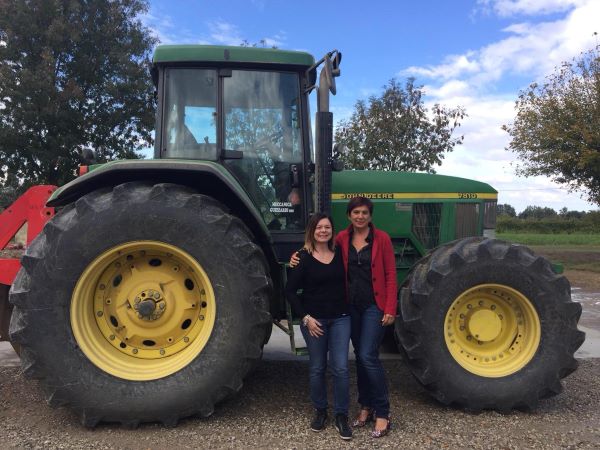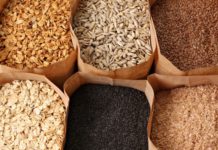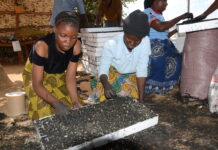On International Day of Rural Women, BKT takes us on a unique journey into one of the most historic Italian companies in agro-machinery industry.Here is the first-hand testimony of Rossella Guizzardi and her daughter Alice,from Meccanica Guizzardi in Granarolo (Northern Italy).
Gender equality in agriculture ? We are getting close, but it is not something new to those who work in this industry. The key role that a female vision can play is making inroads and brings with it particular features, such as clarity, resilience, creativity.
The recent International Day of Rural Women, thestudy day set up by the United Nations General Assembly in 2007, showed the rising number of women who work actively in this industry.
In Italy, today, around 1 agricultural business in 3 is female-run and 32% count on female entrepreneurs, owners of 361,420 companies out of a total of 1,145,680. Thus ‘pink’ agriculture can count on 234,000 women out of a total of 872,000 workers (ISMEA processing of Eurostat data).
BKT Europe, which not coincidentally is led at strategic level by a woman (Lucia Salmaso, CEO), now helps us hear at first hand the female view from one of its customers.
It is the female entrepreneur, Rossella Guizzardi – President of FERIA (Emilia Romagna Federation of Agro-machinery Companies) – who in her 33 years in business has never stopped living the daily experience of the family firm, Meccanica Guizzardi from Granarolo in Emilia, in Northern Italy, where gender diversity has never been a problem. And it will be even less so for her daughter Alice, who thanks to her agrarian studies, is joining the business with the energy and spirit of someone who has major goals to achieve.
1) Rossella, gender diversity in agriculture, to what extent do you consider it a problem, a hurdle?
I believe very little has remained of the typical image showing the man on the tractor and the woman at home looking after the children and feeding the chickens. Fortunately, it is a stereotype which no longer corresponds to today’s reality. When my grandfather founded our business, in 1932, the roles were a bit like that, but it was proportional to the work of that period: ploughing a few fields with a cart and oxen. With my father’s generation, women in the family contributed naturally and actively to the growth of the company.
Perhaps the “flaw” of women who work in purely male environments is not making themselves visible, working in the shadow. The female role is instead appreciated, their opinion listened to. At least this is the case in my experience.
Gender diversity can be a real resource, a duality which sees two different viewpoints set against each other. I see this every day with my brother Massimo: I could never be without him, as an agronomy expert, a professional in the field. In the same way, he knows he can rely on me for operational and organizational aspects, logistics and supplies.
2) Rossella, where in your experience has the female role made a difference?
Clarity as well as resilience are, in my view, female attributes and when you have to face a more or less serious crisis, that is when a woman can make the difference (in a positive way of course). I refer to a recent important change in the company, when we faced a crossroad and had to decide whether to give up or change perspective. I must say that my daughter Alice, despite her 23 years, helped me a lot, with her energy and her ideas. And here we are today, reinventing ourselves, confident in the future, with new initiatives that match our possibilities, so we are starting to grow again, even to expand our customer base.
I often talk to Alice about business issues and what I am sure about is that there is still a great need for training in our sector, an aspect which goes beyond gender. Training is the real launchpad into the future, she helps me understand that every day.
3) Alice, from the experience of your studies, what do you expect the future of agriculture will be and why are women important?
In reality, I am still studying. I graduated in agro-industrial Economics and Marketing, but I am now finishing a 2-year master in Agrarian Science and Technology, with a specialization in business management. At university level the presence of young women and men is about the same and this suggests a future with an equality in roles.
Study is essential to develop the industry and the possibility of making my own small contribution to the family business is wonderful.
4) Alice, will you work at Meccanica Guizzardi?
I don’t know if I will work full-time in the company or if I will simply be a consultant. I would like to offer my ideas with simplicity, to grow one step at a time. I will try to keep alive, where possible, the main goals which provide meaning to work in agriculture today and in the future, i.e. sustainability, an aspect addressed throughout my studies.
5) Rossella, a final question: you use BKT products and also know Lucia Salmaso, CEO of BKT Europe and a woman in agriculture. What is your relationship with the company like?
I have met Lucia Salmaso in person and it was a moving meeting. She is the symbol of a company made up of people and that is why we are loyal customers of BKT. We feel they are close to our world. They support us, they intervene immediately when necessary. They literally take the field.
In BKT I have always seen commitment, the desire to understand, to find out more, to improve.
It is a dynamic brand, we associate it with the countryside, with work, with effort and with an eye on the environment. It has grown in a way which is very representative of us. We tried it out – as many have done – and we never left. Besides liking the product, there is also now a sense of esteem.
Goals, the future, close and distant horizons. The world of agriculture is, in short, one which is constantly moving.
Being close to its users is BKT’s readiest response to facing the challenge of coming years, also through a simple chat in Emilia in the Guizzardi household.








